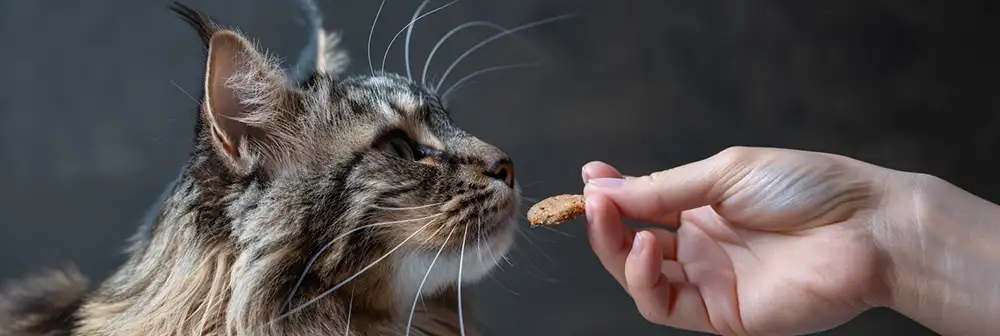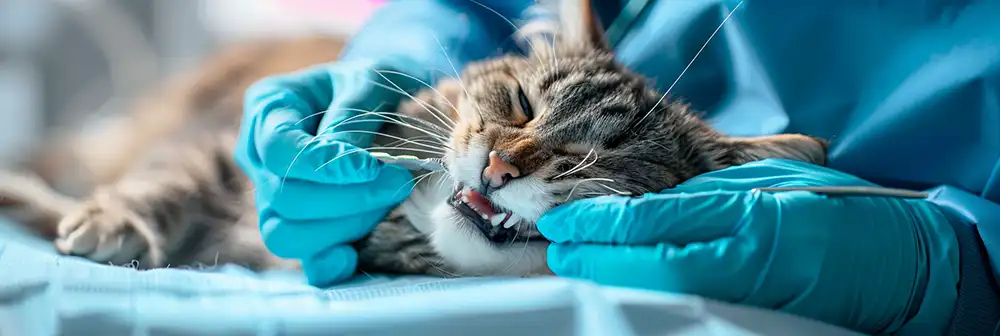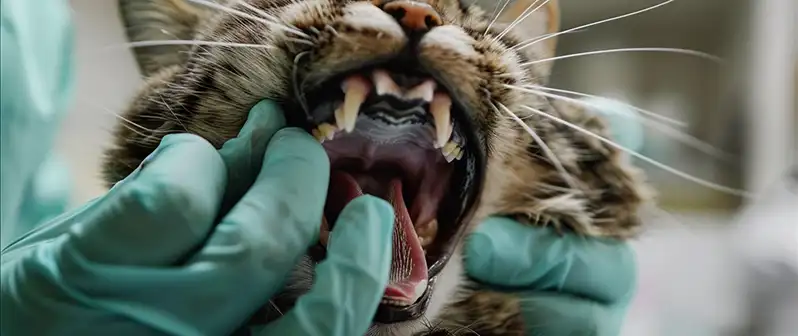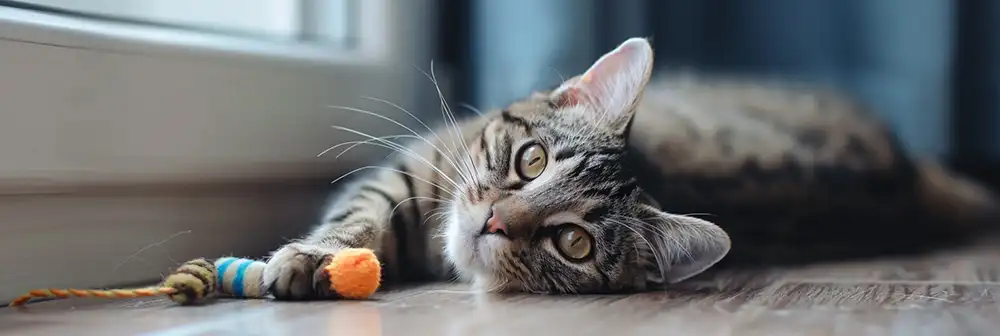Just like humans, proper dental care is necessary for maintaining your cat’s overall health and well-being. Neglecting your cat’s teeth can lead to painful dental issues such as gingivitis, tooth decay, and even infections that can affect their internal organs. To ensure your feline friend has a healthy smile, it’s important to establish a regular dental care routine that includes brushing their teeth, providing dental treats, and scheduling routine check-ups with your veterinarian. By prioritizing your cat’s dental health, you can help them live a longer, happier life free from the discomfort of dental problems.
Daily Dental Care Practices
Brushing Your Cat’s Teeth
The key to maintaining your cat’s dental health is regular brushing. Care should be taken to use a toothbrush and toothpaste specially designed for cats, as human products can be harmful to them. Start slowly, by gently massaging your cat’s gums with your finger, then gradually introduce the toothbrush. Aim to brush your cat’s teeth at least 2-3 times a week to prevent the buildup of plaque and tartar.

Dental Treats and Diets
In addition to brushing, incorporating dental treats and diets into your cat’s routine can help promote good oral hygiene. Practices such as feeding your cat dry food kibbles instead of wet food can aid in removing plaque as they chew. Look for treats that are specifically formulated to support dental health, promoting fresh breath and healthy gums.
Your veterinarian can recommend the best dental products and diets for your cat’s specific needs, so be sure to consult with them to create a comprehensive dental care plan. Bear in mind, prevention is key to avoiding costly dental procedures and ensuring your cat’s overall health and well-being.
You Can also Try this Gel Plaque Remover by Tropiclean which is a very good product that we tested > Click Here to see it on Amazon or See Our Shop
Professional Dental Cleanings
When to Schedule a Dental Cleaning
One of the key aspects of maintaining your cat’s oral health is scheduling regular professional dental cleanings. Most veterinarians recommend a dental cleaning once a year for cats, but this may vary depending on your cat’s individual needs and oral health. Some cats may require more frequent cleanings due to dental issues or a predisposition to dental disease.

What to Expect During Cat’s Teeth Professional Cleanings
Dental cleanings for cats are typically performed under general anesthesia to ensure a thorough cleaning can be done without causing stress or discomfort to the cat. During the cleaning, the veterinarian will remove plaque and tartar from the teeth, inspect for any signs of dental disease, and may perform dental X-rays if necessary to assess the health of the teeth below the gumline.
It is crucial to address any dental issues promptly to prevent them from progressing and causing more significant problems for your cat. Regular professional cleanings can help maintain your cat’s oral health and prevent issues such as gum disease, tooth decay, and bad breath. Don’t delay in scheduling a professional dental cleaning for your cat to keep their teeth and overall health in top condition.
Recognizing and Addressing Dental Problems
Signs of Dental Disease in Cats
To recognize dental disease in cats, watch out for signs such as bad breath, inflamed gums, tartar buildup, and reluctance to eat or groom. If your cat is drooling excessively or pawing at their mouth, it could indicate serious dental issues. Regularly inspect your cat’s teeth and gums for any abnormalities to catch problems early on.
Treatment Options for Dental Issues
On discovering dental problems in your cat, prompt treatment is imperative. Options may include professional dental cleaning under anesthesia, extractions, and in severe cases, antibiotics or pain medication. Regular dental check-ups can prevent issues from escalating. Ignoring dental problems can lead to pain, infection, tooth loss, and even systemic health issues.
Dental care for cats is crucial for their overall well-being. Cats are experts at hiding pain, so even if your feline friend seems fine, it’s imperative to schedule routine dental check-ups with your veterinarian. Note, a healthy mouth means a healthier cat.

Advanced Dental Care
- Keep Regular Vet Visits: Regular check-ups are necessary for maintaining your cat’s dental health. Your vet will be able to identify any potential issues early on.
- Advanced Dental Treatments: For serious dental problems, advanced treatments like root canals or crowns may be necessary.
- Professional Cleanings: Professional cleanings may be recommended by your vet to remove tartar and plaque buildup.
- Diet and Dental Health: Providing your cat with a balanced diet can contribute to their overall dental health.
Dental Surgery and Extractions for Cats
Advanced dental care may sometimes involve dental surgery or extractions for cats. If your cat has severe dental disease or a tooth that cannot be saved, your vet may recommend surgery or extraction. It is necessary to follow your vet’s recommendations and provide proper post-operative care to ensure your cat’s quick recovery.
Long-Term Dental Health Strategies
The long-term dental health of your cat is crucial for their overall well-being. Regular dental check-ups, daily teeth brushing, and a healthy diet are key factors in maintaining good oral hygiene. Additionally, providing dental treats or toys can help reduce plaque and tartar buildup. Bear in mind, prevention is always better than cure when it comes to your cat’s dental health.

Dental care goes beyond just brushing your cat’s teeth; it involves a holistic approach to ensure their overall well-being. By implementing long-term dental health strategies, you can prevent dental issues and keep your feline friend healthy and happy for years to come.
Summing up
As a reminder, maintaining your cat’s dental hygiene is crucial for their overall health and well-being. Regular teeth brushing, proper diet, and routine check-ups with your veterinarian are key to preventing dental issues and ensuring a happy, healthy feline companion. By following these simple steps, you can keep your cat’s teeth clean and their smile bright for years to come.
FAQ
Q: Why is it important to take care of your cat’s teeth?
A: Taking care of your cat’s teeth is crucial for their overall health and well-being. Just like in humans, dental issues in cats can lead to pain, infection, and even systemic health problems. By maintaining good dental hygiene, you can prevent dental issues and promote your cat’s overall health.
Q: How can I keep my cat’s teeth clean?
A: Regular brushing is the best way to keep your cat’s teeth clean. Use a cat-specific toothbrush and toothpaste to gently brush your cat’s teeth a few times a week. Additionally, feeding your cat dry food can help scrape away plaque and tartar. Dental treats and toys designed to promote dental health can also be beneficial.
Q: When should I take my cat to the vet for dental care?
A: It is recommended to take your cat to the vet for a dental check-up at least once a year. However, if you notice any signs of dental issues such as bad breath, swollen gums, or difficulty eating, you should schedule a vet appointment promptly. Your vet may recommend professional dental cleaning under anesthesia to address any existing dental problems.